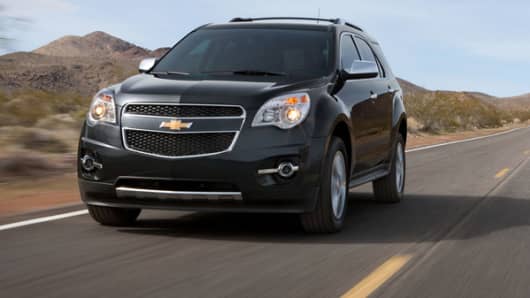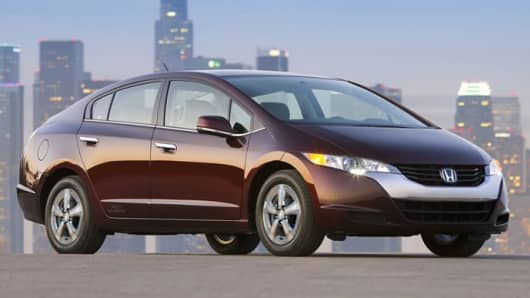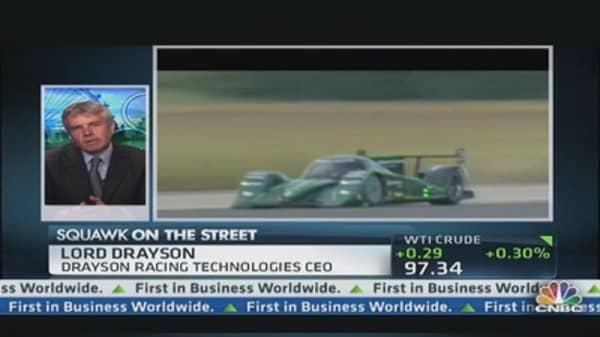The open-ended joint venture is unusual in its breadth, GM and Honda agreeing to share absolutely all their knowledge and patents involving hydrogen power," GM Vice Chairman Steve Girsky was expected to say.
"We'll achieve this goal through shared expertise, economies of scale and common sourcing strategies," said the prepared remarks for the former Wall Street analyst. "We're talking about a complete sharing of all our respective intellectual properties on the subject."
Added a senior insider at one of the new partners who was not allowed to discuss the venture publicly. "You can't hold something back. Either we win together or we don't win at all."
The likely result, company sources agreed, will be a fuel cell stack that they can share by the end of the decade. While the venture is currently limited to the research level, there appears to be support for jointly manufacturing the eventual technology to further reduce costs.
(Read More: Tesla Petitions White House for Help with Direct Sales)
It remains anyone's guess how quickly fuel cell vehicles can be ready for prime time. At one point, GM's former Chairman Rick Wagoner had hoped to be in widespread production by the middle of this decade.
Fuel cell technology gained significant momentum during the years around the end of the last Millennium. But due to the seemingly endless hurdles, the technology lost momentum in favor of battery power. Now that electrification is losing voltage there's renewed interest in hydrogen. Steven Chu, outgoing Obama Administration Energy Secretary lately has been steering government support back to fuel cell research after curbing it during the president's first term.
(Read More: 'Most American' Automaker Is Finally American Again)
Nonetheless, a growing number of automakers have been amping up their hydrogen programs of late. Toyota is showing off a prototype fuel-cell vehicle at the 2013 Ideas Festival and promises to have a hydrogen car on the market by the 2015 model-year. Mercedes is fleet testing its F-Cell model in California, and Hyundai also has expressed plans to market a fuel cell model in the near future.
To get there, a growing number of makers are launching partnerships they hope will lower costs, speed up development and overcome the technical obstacles to mass market acceptance.
-By CNBC Contributor Paul Eisenstein; Follow him on Twitter @DetroitBureau





